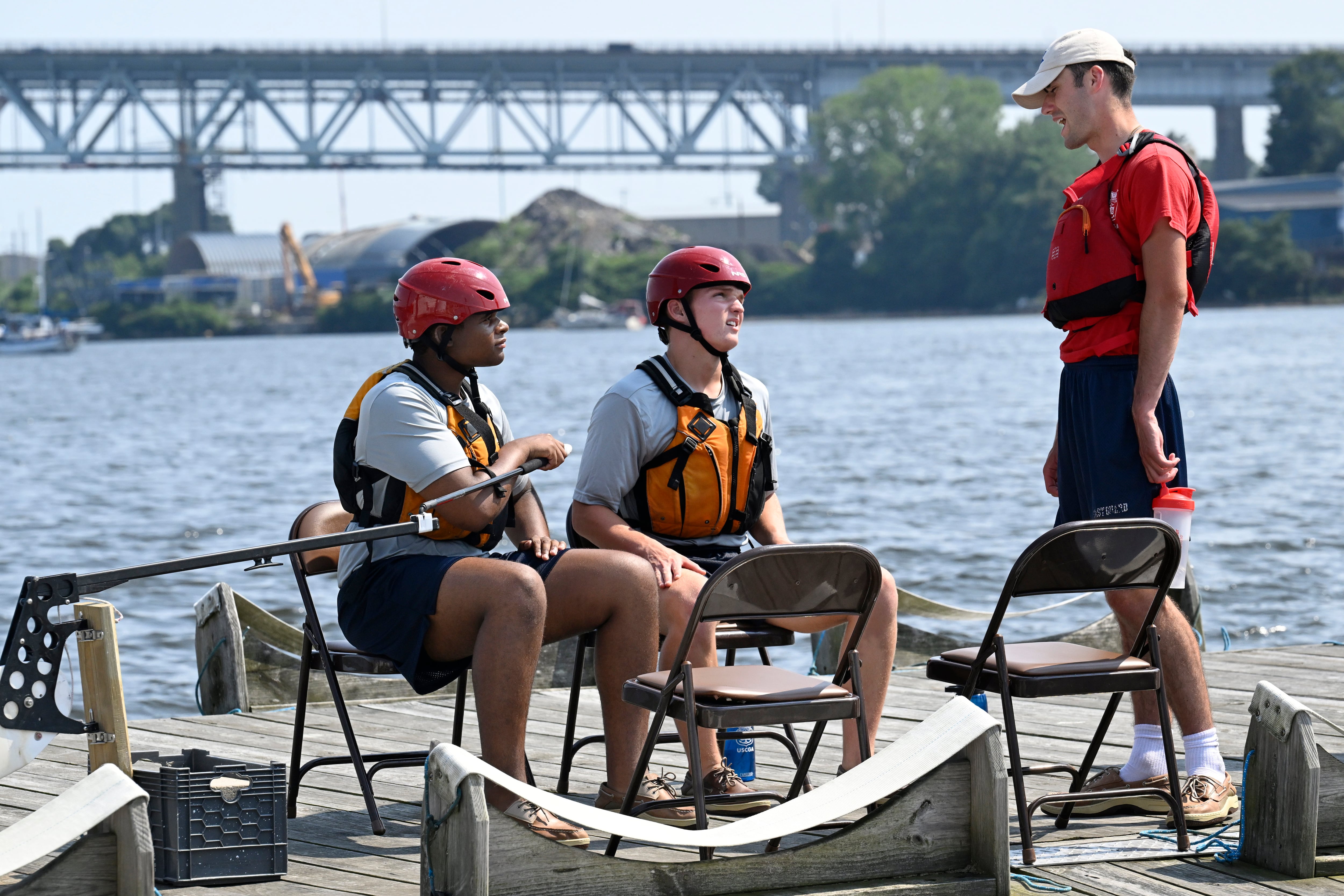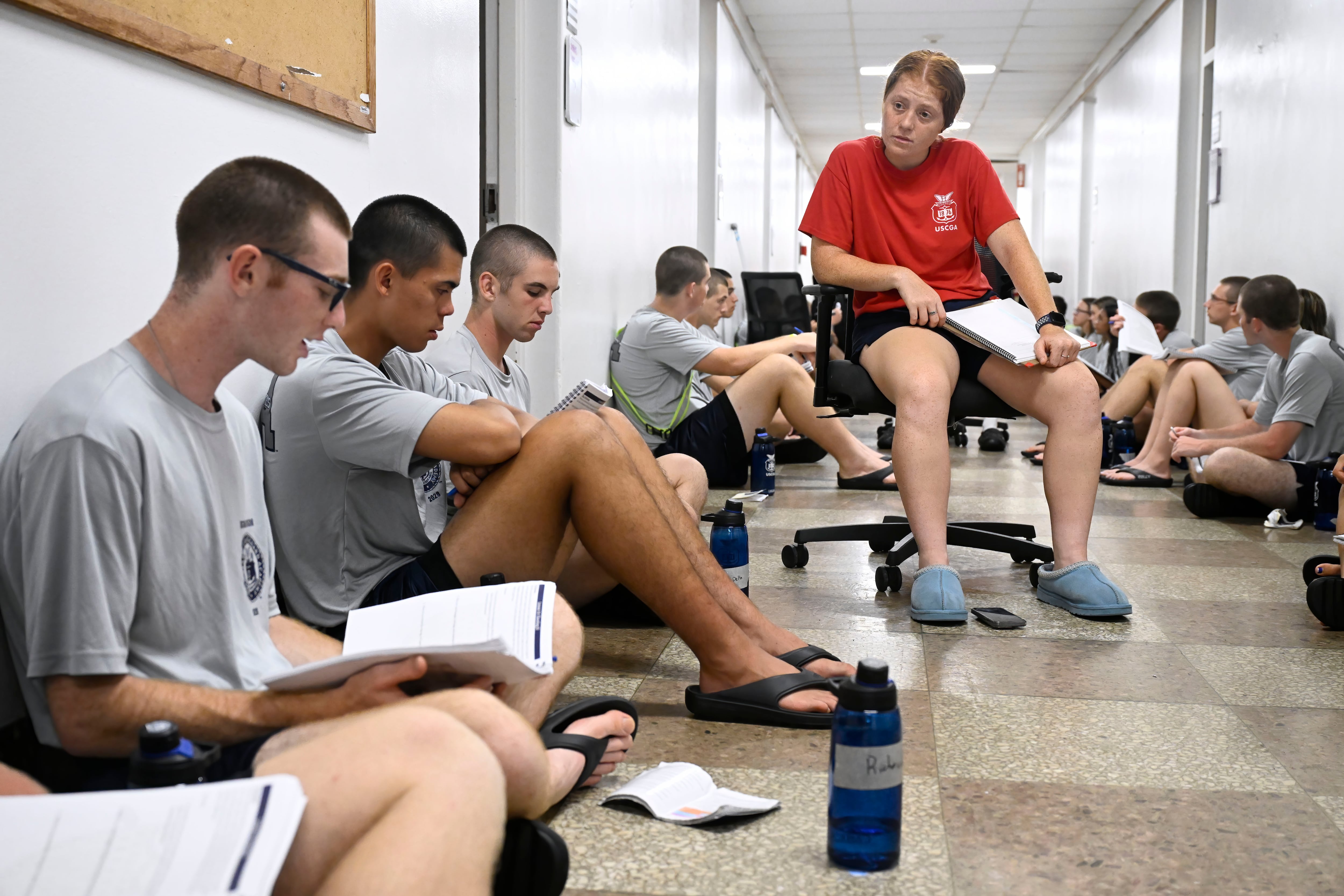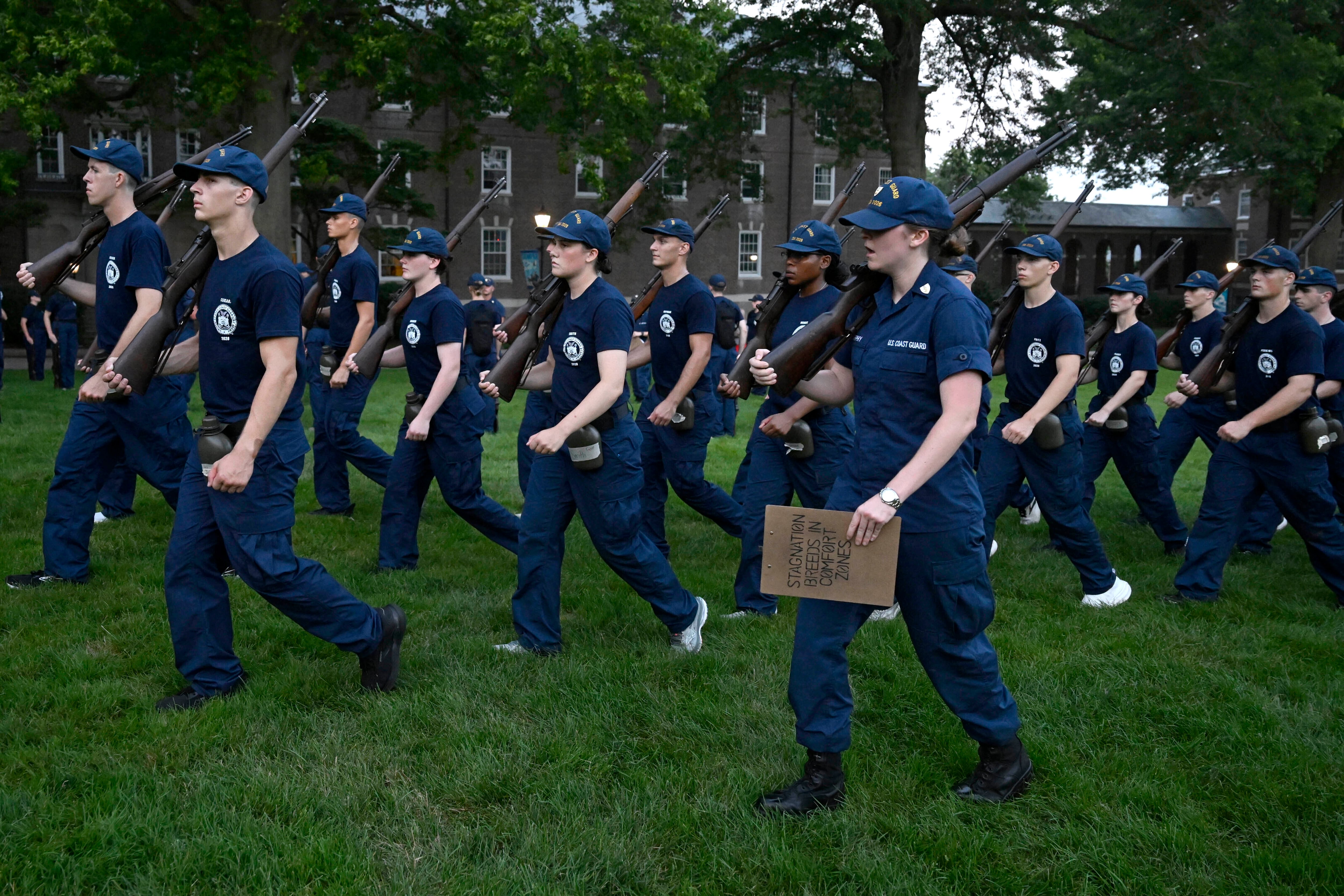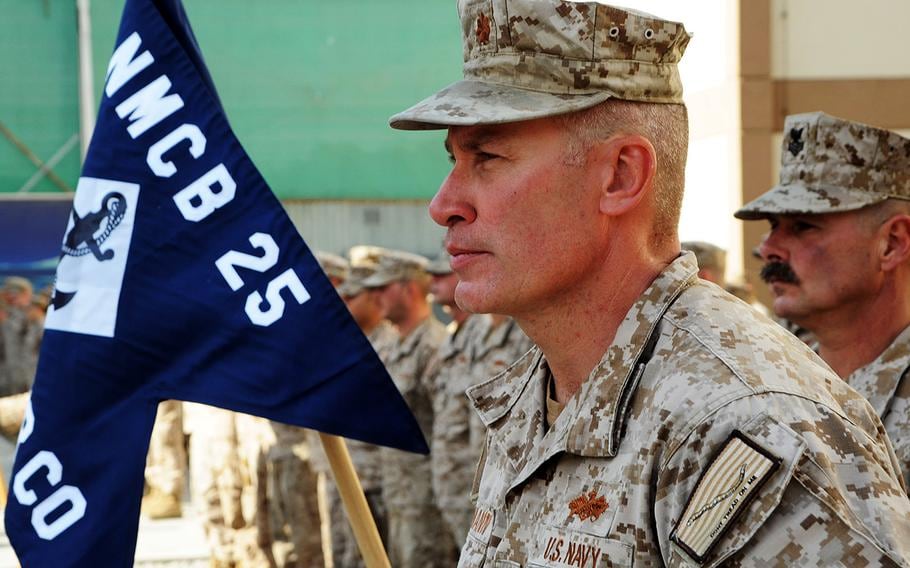NEW LONDON, Conn. — The grueling basic training for fledgling cadets at the U.S. Coast Guard Academy, known as swab summer, has been revamped this year in light of a sexual abuse scandal that has rocked the prestigious service academy.
Gone is the shock-and-awe on Day 1 of the seven-week boot camp when rising juniors, known as cadre, shout in the faces of the roughly 300 incoming freshmen students when they first arrive at the New London, Connecticut, campus for future U.S. Coast Guard officers. This year, the cadre read forcefully from a prepared script, avoiding improvisation and yelling.
The goal is to drain the adrenaline of the cadre and make the boot camp more about mentorship and respect than browbeating and bullying, hopefully creating a positive ripple effect throughout the Coast Guard.
“When you don’t have a script, you end up just resorting to volume,” said retired Cmdr. John Heller, the deputy commandant of cadets for strategy and leadership, who has worked at the academy in various roles for about 25 years and helped to oversee the latest changes mirrored after the U.S. Military Academy’s cadet training.
“What ends up happening is, we had been onboarding our cadets for decades, unintentionally perhaps, in a climate of fear and intimidation.”
Changing the climate of swab summer is one of seven actions the academy was instructed to take following revelations the Coast Guard kept secret a probe called Operation Fouled Anchor. The investigation found that dozens of sexual assault and harassment cases involving cadets from 1990 to 2006 had been mishandled by the school, including the prevention of some perpetrators from being prosecuted.
The revelation, first reported by CNN, sparked calls for major reforms and long-awaited accountability for the offenders and those who protected them. There are multiple government and congressional investigations underway looking into the mishandling of serious misbehavior at the school and beyond.
A damning majority staff report released Wednesday by the Senate’s Permanent Subcommittee on Investigations found “systemic failures” that “continue to this day” at the academy and in the wider Coast Guard. At a field hearing the committee held Thursday in New London, past and present enlisted personnel spoke of abuse and harassment they experienced and how a “culture of coverup” ultimately protected their perpetrators.

Shannon Norenberg, a former sexual assault response coordinator at the academy who resigned in June and turned whistleblower, said 20-year-old cadets training and having power over swabs a couple years younger, with minimal supervision, was an issue she raised during last year’s review that the commandant ordered following the revelations of Operation Fouled Anchor.
“Sometimes the cadets just are not mature enough to handle that role of being in charge and they go too far” and get personal, such as making comments about a swab’s intelligence or appearance, said Norenberg, who has since rescinded her resignation and is trying to return to her campus position.
"Instead of correcting swabs’ behavior, they would insult their character or attack their worthiness to be there.”
Months later, the swabs have learned that the cadre, whom they still call sir and ma'am, can tell them what to do and get them in trouble.
“You can imagine the misuse of power that has been taken advantage of over and over,” said Norenberg, who noted that during her 11 years at the academy, she dealt with more than 150 reported sexual assault cases, including many that involved the abuse of power.
As ordered by the commandant, there’s more oversight of the cadre this summer. Drill instructors from Training Center Cape May in New Jersey, where enlisted personnel are trained, have been tasked with mentoring the cadre. Outside experts have been invited to campus to talk about issues such as power dynamics.
That's in addition to professional victim advocates who were first hired at the school in 2021 and who have been training the swabs and cadre about sexual harassment, assault and rape.
A new program called shield training was implemented this year to emphasize the Coast Guard’s core values of honor, respect and devotion to duty. Every night after tired swabs have showered — some in individual stalls that were recently built to provide privacy — they break into groups with a cadre member to go over a lesson and discuss what happened that day with their squad.
Swabs are allowed to note personal issues they might be having in daily diaries that cadre review. They can also make a special hand gesture to signal they need to speak in private with cadre.

Oliva Spada, a swab from Long Island, New York, said she had some trepidation before coming to the academy due the reports of sexual abuse and harassment. But a few weeks into her new life as a cadet, she felt completely safe.
“Like, never, ever would I feel like anything like that would happen,” she said. “I feel completely safe around my cadre, around my shipmates.”
But the changes have been met with skepticism by some past and present Coasties, the nickname for Coast Guard members.
“It’s theater. They have not internalized any wrongdoing,” said retired Cmdr. Kimberly McLear, a former whistleblower who taught at the academy and later founded the Right the Ship Coalition, which seeks to help those “wronged by the culture of cruelty and cover-up" in the Coast Guard.
“They are taking calculated measures to shift attention to cadets’ performance to distract from the culture of the staff, faculty and leaders up to the commandant.”
Academy staff are well aware of the skepticism about the changes being made and whether they get to the heart of the problem.
“We’ve got a lot of trust that we’ve got to earn back,” said Cmdr. Krystyn Pecora, who attended the academy 20 years ago. "And so I can appreciate that skepticism.”
Pecora said she disagrees with criticism from some old-guard Coasties, who believe the school is now going too easy on the new cadets.
“There’s nothing easy about respect,” she said. “In fact, it’s easier for me to just go down there and scream and intimidate. It’s not more effective. So putting this focus on building respectful leadership, that’s challenging and it’s not easier for anyone.”
The Coast Guard as a whole has been tasked with taking 33 actions in light of Operation Fouled Anchor, including seven assigned to the academy.
Besides changes to swab summer, the cadets' conduct system is being updated and security in the dormitory is being strengthened, including plans to upgrade locks on cadets’ rooms and install more security cameras. There's a new policy that allows cadets who have been assaulted to continue their studies at another service academy.
Cadet 2nd Class Gabriella Kraus-Rivera said Operation Fouled Anchor is common knowledge among the cadets and “there’s no kid here that doesn’t understand what happened" and that cultural changes are needed.
“I think that’s part of having honor, is living with that integrity and being able to be honest about the things that happened at this academy,” she said. “The only way you’re going to change it is if you acknowledge it first.”





